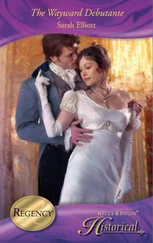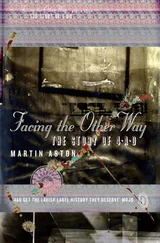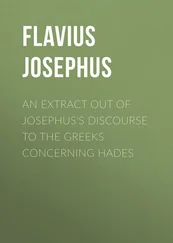Sarah Caudwell - The Shortest Way to Hades
Здесь есть возможность читать онлайн «Sarah Caudwell - The Shortest Way to Hades» весь текст электронной книги совершенно бесплатно (целиком полную версию без сокращений). В некоторых случаях можно слушать аудио, скачать через торрент в формате fb2 и присутствует краткое содержание. Жанр: Иронический детектив, на английском языке. Описание произведения, (предисловие) а так же отзывы посетителей доступны на портале библиотеки ЛибКат.
- Название:The Shortest Way to Hades
- Автор:
- Жанр:
- Год:неизвестен
- ISBN:нет данных
- Рейтинг книги:5 / 5. Голосов: 1
-
Избранное:Добавить в избранное
- Отзывы:
-
Ваша оценка:
- 100
- 1
- 2
- 3
- 4
- 5
The Shortest Way to Hades: краткое содержание, описание и аннотация
Предлагаем к чтению аннотацию, описание, краткое содержание или предисловие (зависит от того, что написал сам автор книги «The Shortest Way to Hades»). Если вы не нашли необходимую информацию о книге — напишите в комментариях, мы постараемся отыскать её.
The Shortest Way to Hades — читать онлайн бесплатно полную книгу (весь текст) целиком
Ниже представлен текст книги, разбитый по страницам. Система сохранения места последней прочитанной страницы, позволяет с удобством читать онлайн бесплатно книгу «The Shortest Way to Hades», без необходимости каждый раз заново искать на чём Вы остановились. Поставьте закладку, и сможете в любой момент перейти на страницу, на которой закончили чтение.
Интервал:
Закладка:
Shaking their coppery heads, they mutely reassured me that my narrative still held their interest.
“—that their uncle, in his own private life, is himself accustomed to indulge in practices which would cause a raised eyebrow among the strictly conventional. Last autumn, finding themselves in London, they saw an opportunity to be innocently revenged. Having learnt from some mutual acquaintance that their uncle had invited several of his friends to join him on a particular evening in certain idiosyncratic diversions, they intruded on the gathering in the guise of members of the police force, conducting what is known as a raid.”
“I say,” said Lucinda, resolutely ingenuous, “how awful of them. Weren’t they afraid they’d be recognized?”
“Evidently not. Their uncle had not seen them since they left school, and they made liberal use of wigs and false mustaches. You may perhaps think, knowing them as you do, that the girl would have had some difficulty in disguising her strikingly feminine appearance; but it is surprising — I have had a little experience with amateur theatricals — how easily a young woman of voluptuous figure may, with suitable padding, pass as a substantially built young man, provided that she does not open her mouth. Well, the enterprise succeeded beyond their expectations — not only did they embarrass their uncle, but they also secured possession of his camera, with which he and his friends had been photographing one another in various interesting poses. They developed the film, and the photographs which you are holding are the result. Your friends, I gather, made no immediate use of them, though they were comforted by the thought that if their uncle made any further attempt to interfere in their private lives material was at hand to discredit his opinion. Meanwhile, they kept the photographs in a place which they fondly imagined to be secure and private, taking them out from time to time merely for their personal amusement.”
“Deirdre didn’t know about all this,” said Lucian, “you can’t have heard about it from Deirdre.”
“No,” I said. “No, it wasn’t from Deirdre — though she evidently had a certain talent for knowing things she was not supposed to know and finding things she was not supposed to find. Certainly she found these photographs, on some occasion when she was visiting her cousins, and decided — I say nothing of her motives — to take possession of them. When her cousins discovered the loss they were, I rather think, more than a little perturbed: much as they disliked their uncle, they had never intended that such damaging photographs should pass into general circulation. Still, there was nothing to be done: they had almost forgotten the incident, until a few months later the photographs were scattered on the ground before them on the Esplanade at Corfu.”
“Oh,” said Lucinda despondently, “you know it’s us.”
They sat gazing at me with bewildered apprehension. Lucinda sought or offered reassurance by surreptitiously clasping her brother’s hand.
“I don’t understand how you know all this,” said Lucian. “You seem to know things that no one could know except us.”
“It’s as if you could see into people’s minds,” said his sister. “Who are you? How do you know all these things?”
“I am a scholar,” I said. “Few mysteries are impenetrable to the trained mind.”
They continued, however, to gaze at me with a sort of superstitious dread, as if supposing me studied in some darker and more secret learning than is to be found in the statutes of Edward I or the books of Glanvil and Bracton. My heart warmed to these delightful young people: it was such a different response from any I could have hoped for in Lincoln’s Inn, where my carefully reasoned deductions would have been described as mere guesswork, or else as so childishly simple that the members of the Nursery, had they not been occupied with more important matters, could have worked them out for themselves in half the time.
“There is no need,” I said kindly, “to look so anxious. Your conduct is quite understandable: the interference of your relative in your affairs must have been most irritating.”
“We wouldn’t have minded,” said Lucian, “but it’s so beastly for Mama. Rupert writes to Father saying we’re behaving badly and Father writes to Mama and says she can’t have brought us up properly and Mama gets all upset. It’s terribly unfair, because she has brought us up properly — well, she tried.”
“You may think,” said Lucinda, “that we’re not terribly well brought up. But it isn’t Mama’s fault.”
“I believe,” I said, “that you are very fond of your mother, and would go to great lengths to protect her from any distress?”
To this they both vigorously assented.
“And we didn’t keep the camera,” said Lucinda. “We gave it to Oxfam.”
There was a further question which I should have liked to ask them; but I thought, despite the impression I had made on them, that they would not have given me a truthful answer. With the photographs again in my possession, I left the Fairfax twins and made my way, by a discreetly circuitous route, to another cafe further down the Liston, where I sat at a table shaded from the sun by a wide blue canopy.
Men in white had begun to gather beside the Esplanade, some young, some middle-aged. The older men — these, presumably, were the Writers and Artists — were dressed in conventional white flannels; the younger ones — those qualified, I supposed, by ties of blood rather than personal accomplishment to play for one or other of the two sides — had preferred to wear shorts. They hoped, perhaps, to impress with the shapeliness of their legs those tourists of the female sex who were now beginning to take afternoon refreshments at the tables in the Liston; though Julia, most susceptible of tourists, has been heard to say that the traditional cricketing costume, if worn by a young man of graceful figure, is of all forms of masculine dress the one most conducive to desire. (But that, I seem to remember, was under the influence of some particular attachment.)
Looking across to the far side of the Esplanade, I observed a motor-car draw up there, of moderate size and rather shabby, and a tall, dark man emerge from the door nearest to the driving seat. Though I had not the privilege of any personal acquaintance with Constantine Demetriou, I thought that I would instantly have known him, even had he not been accompanied by Camilla and his wife and son. I would not have doubted, even at such a distance, that this was a man of no ordinary sort, but one marked out by some kind of greatness. I cannot say precisely what it was that produced this effect: though tall, he was not in truth so much above average height as to account for the impression he gave of Olympian stature: but he walked across the Esplanade like a man who treads an immortal path, in the footsteps of Homer and Aeschylus.
The Writers and Artists welcomed him with enthusiasm. With a certain air of ceremony, he settled Dolly at a table close by the edge of the cricket pitch, in the shade of a thick-leaved acacia tree, with Camilla and Leonidas on either side of her; the group was completed by the Fairfax twins, who strolled across from the Liston to join them. The poet himself continued to go to and fro among the players, no doubt with words of encouragement and exhortation for his team.
There was as yet no sign of Sebastian and Selena, and Constantine seemed once or twice to look anxiously at his watch.
At last, however, I saw them hurrying towards the cricket pitch from the southern end of the Esplanade, Selena every few yards or so giving a little skip to keep pace with Sebastian’s longer stride. She was wearing the dress of sky-blue cotton which I had admired on a previous occasion, and Sebastian had somehow provided himself with clothing of suitable whiteness for the activities of the afternoon. Constantine waved, and went a little way to meet them.
Читать дальшеИнтервал:
Закладка:
Похожие книги на «The Shortest Way to Hades»
Представляем Вашему вниманию похожие книги на «The Shortest Way to Hades» списком для выбора. Мы отобрали схожую по названию и смыслу литературу в надежде предоставить читателям больше вариантов отыскать новые, интересные, ещё непрочитанные произведения.
Обсуждение, отзывы о книге «The Shortest Way to Hades» и просто собственные мнения читателей. Оставьте ваши комментарии, напишите, что Вы думаете о произведении, его смысле или главных героях. Укажите что конкретно понравилось, а что нет, и почему Вы так считаете.












